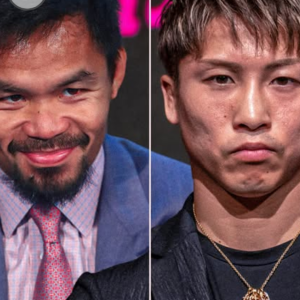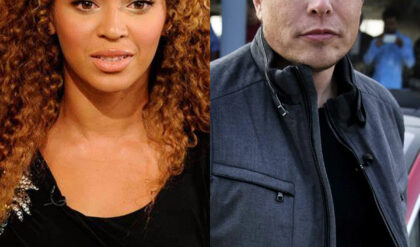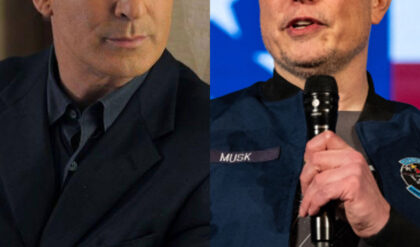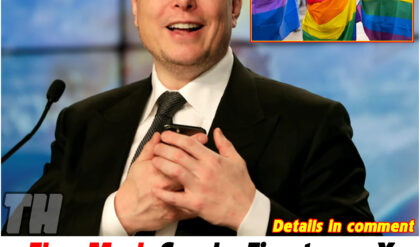The recent allegations made by Diddy’s former bodyguard, claiming the existence of explicit videos involving Diddy and Will Smith, have sent shockwaves through the entertainment industry. These claims, which surfaced through social media and interviews, have sparked heated debates about privacy, sensationalism, and the ethics of exposing personal lives.
Background on the Allegations
According to reports, Diddy’s former bodyguard alleged that he had knowledge of several explicit videos involving Diddy and actor Will Smith. While no evidence has been publicly presented to support these claims, the mere accusation has generated widespread attention. Both Diddy and Will Smith are iconic figures in their respective fields, with careers spanning decades and massive influence in music, film, and business.
The bodyguard’s statements have not been corroborated by credible sources or legal proceedings. However, the media frenzy surrounding the allegations highlights society’s fascination with celebrity scandals and the broader implications for privacy and accountability.
The Role of Social Media and Public Perception
Social media platforms have played a significant role in amplifying these allegations. Within hours of the claims being made, hashtags and discussions emerged across platforms such as Twitter, Instagram, and TikTok. Many users expressed shock, disbelief, or support for the individuals involved, while others criticized the bodyguard for making such allegations without evidence.
This incident underscores the power of social media in shaping narratives and influencing public opinion. In many cases, allegations—whether substantiated or not—can have a lasting impact on reputations. The rapid spread of information, combined with the lack of critical evaluation, often leads to trial by public opinion, where individuals are judged before any legal or factual basis is established.
The Ethical Implications of Exposing Personal Lives
The allegations raise important ethical questions about the boundaries of privacy and the motivations behind such claims. Why would a former employee choose to make these allegations public? Is it an attempt to seek justice, or are there ulterior motives such as financial gain or personal vendettas?
For celebrities like Diddy and Will Smith, the constant scrutiny of their personal lives comes with the territory of fame. However, there is a fine line between legitimate public interest and the invasion of privacy. Public figures have a right to personal boundaries, and exposing intimate details—especially without consent or evidence—raises serious ethical concerns.
Legal Considerations and Potential Consequences
From a legal perspective, making unsubstantiated claims about individuals can lead to defamation lawsuits. Both Diddy and Will Smith have the resources to pursue legal action if they choose to address these allegations formally. Defamation laws vary by jurisdiction, but the basic principle is that false statements harming a person’s reputation can result in legal consequences for the accuser.
Additionally, the bodyguard’s credibility and intentions would likely come under scrutiny in any legal proceedings. Without concrete evidence, the allegations could be dismissed as baseless, further complicating the situation for all parties involved.
Impact on the Careers of Diddy and Will Smith
Both Diddy and Will Smith are no strangers to controversy, having navigated various challenges throughout their careers. However, these allegations could still have a significant impact on their public images and professional endeavors. Brands, partners, and fans often react strongly to scandals, regardless of their veracity.
For Diddy, who has built a multi-billion-dollar empire spanning music, fashion, and spirits, maintaining a positive public image is crucial for his business ventures. Similarly, Will Smith’s career as an actor and producer relies heavily on his reputation as a beloved Hollywood icon. While both men have loyal fan bases, the allegations could create new challenges in managing their public personas.

The Broader Conversation About Celebrity Culture
This incident is part of a larger conversation about celebrity culture and the public’s appetite for scandal. Society often places celebrities on pedestals, only to relish their downfall when controversies arise. This cycle of adulation and vilification reflects deeper issues, including the unrealistic expectations placed on public figures and the tendency to dehumanize them.
Moreover, the focus on sensational allegations detracts from more meaningful discussions about the contributions and achievements of individuals like Diddy and Will Smith. Their legacies as cultural icons should not be overshadowed by unverified claims or fleeting controversies.
Moving Forward
As the situation unfolds, it is essential to approach the allegations with skepticism and a commitment to fairness. Jumping to conclusions based on unverified statements does a disservice to all parties involved. Instead, the public should demand evidence and respect the legal process before forming opinions.
For Diddy and Will Smith, addressing these allegations—whether through legal action, public statements, or silence—will require careful consideration of the potential ramifications. Their ability to navigate this controversy will likely serve as a testament to their resilience and professionalism.
In conclusion, the claims made by Diddy’s former bodyguard highlight the complexities of fame, privacy, and accountability in the digital age. While the truth behind these allegations remains unclear, the broader implications for celebrity culture and societal attitudes toward scandal are undeniable. As the public, we have a responsibility to critically evaluate information, resist sensationalism, and prioritize empathy and fairness in our judgments.
News
Turki Alalshikh Confirms $600 Million Rematch Between Ryan Garcia and Devin Haney.
Turki Alalshikh Confirms $600 Million Rematch Between Ryan Garcia and Devin Haney. The boxing world is electrified as Turki Alalshikh, the Saudi Arabian sports mogul, has officially confirmed a blockbuster rematch between Ryan Garcia and Devin Haney. With a staggering…
Breakings: Alex Pereira to Expose Jon Jones? Shocking 2025 Super Fight Rumors Explode!
Breakings: Alex Pereira to Expose Jon Jones? Shocking 2025 Super Fight Rumors Explode! Let’s dive into the wild speculation, the brewing tension, and the jaw-dropping secrets that might redefine both fighters’ legacies. The Cryptic Clues – Is Pereira Hinting at…
WWE Star Stuns Fans with Bold Plan Involving Liv Morgan for 2025
WWE Star Stuns Fans with Bold Plan Involving Liv Morgan for 2025 The WWE Universe is buzzing with speculation after a prominent name declared their desire to team up with Liv Morgan to capture the tag team titles in 2025. The…
Shakur Stevenson is willing to take less to make fight with Tank Davis a reality
Shakur Stevenson is willing to take less to make fight with Tank Davis a reality In a bold move that has sent shockwaves through the boxing world, Shakur Stevenson, one of the brightest young stars in the sport, has made…
Breakings: Bob Arum says Naoya Inoue’s career is more legendary than Manny Pacquiao’s
Breakings: Bob Arum says Naoya Inoue’s career is more legendary than Manny Pacquiao’s In a bold statement that has sparked considerable discussion in the boxing world, legendary promoter Bob Arum has declared that Naoya Inoue’s career is more legendary than…
Eddie Hearn has confirmed that Anthony Joshua is considering fighting Deontay Wilder next.
Eddie Hearn has confirmed that Anthony Joshua is considering fighting Deontay Wilder next. In a bold and highly anticipated move, boxing promoter Eddie Hearn has confirmed that former world champion Anthony Joshua is seriously considering a bout with former WBC…
End of content
No more pages to load












